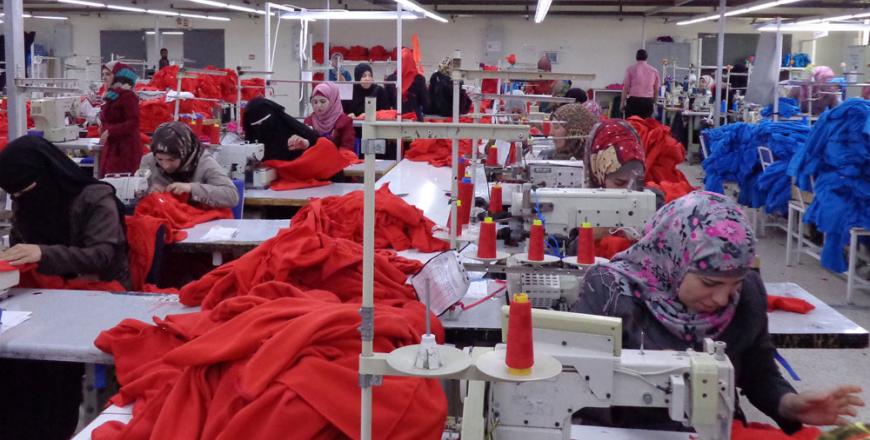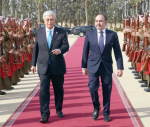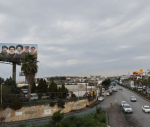You are here
Only two Jordanian companies benefiting from EU relaxed rules of origin
By Mohammad Ghazal - Jul 24,2017 - Last updated at Jul 24,2017
AMMAN — As only two Jordanian companies have so far benefitted from the 2016 EU relaxed rules of origin deal for Jordanian exports to Europe, more networking with business partners in Europe is needed to maximise the benefits from the agreement, an official said on Sunday.
A total of eight companies met the conditions required to benefit from the EU rules of origin agreement and were approved by the Ministry of Industry and Trade. Two of them have been exporting to Europe since the signing of the deal last year, Yousef Shammali, the ministry's secretary general, told The Jordan Times on Sunday.
“The two Jordanian companies that benefited from the deal exported commodities worth 500,000 euros to Spain and Cyprus,” the official said.
In July last year, EU and Jordan signed a deal under which manufacturers in Jordan can import up to 70 per cent of the raw materials used in production, and still label the finished products as ìMade in Jordanî, qualifying them for trade concessions. The agreement is valid for 10 years.
According to the official, the companies that obtained approvals to benefit from the deal work in sectors of plastic and metal industries, chemical industries, cables, garment and textile.
The official said there is a need for more networking between Jordanian businesspeople and their EU counterparts to find new markets. There is also a need to promote Jordanian products in these new markets, Shammali added.
Voicing optimism about the increase in the number of Jordanian companies that would be benefiting from the deal in the near future, he said plans for holding a Jordanian-European business forum in Frankfurt during the next three weeks are under way. He noted it would help provide an opportunity for networking and collaboration between businesspeople from both countries.
Shammali added that an expert from the Netherlands is currently working with the ministry to draft an action plan and define the sectors that can best benefit from the deal, stressing that the ministry would continue its efforts to raise awareness about the deal and its benefits.
The Kingdom’s exports to the EU totalled JD144 million in 2002, and rose to JD206 million in 2014, but dropped to JD123 million in 2015. Imports from the EU reached JD3.1 billion in 2015, up from JD1 billion in 2002.
Under the deal with the EU signed last year, parties designated a total of 18 industrial and developmental zones as beneficiaries, while the relaxed rules will also be applied to other industries across the Kingdom as soon as 200,000 jobs are created for Syrian refugees, after they are issued work permits.
Related Articles
AMMAN — Salem, 39, is a Syrian refugee who works in general maintenance in Jordan without an official work permit.Registered as a refugee wi
AMMAN — Of nine companies that applied to the Ministry of Industry, Trade and Supply to export to Europe, six have been approved after compl
AMMAN — The reluctance of Syrian labourers to work in the industrial sector is a hindrance for the Kingdom to benefit from the deal with the
















